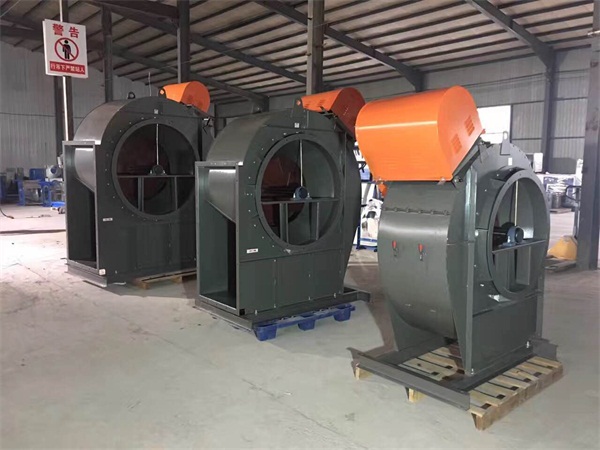上世紀80年代,出現(xiàn)了玻璃纖維增強聚脂復(fù)合風(fēng)管。玻璃纖維聚脂復(fù)合風(fēng)管為有機材料,耐水氣腐蝕不生銹,解決了鍍鋅鐵皮復(fù)合風(fēng)管易生銹,使用壽命不長的缺點,在紡織廠房廣泛使用。
In the 1980s, glass fiber reinforced polyester composite air duct appeared. Glass fiber polyester composite air duct is made of organic material, which is resistant to water vapor corrosion and does not rust. It solves the shortcomings of easy rust and short service life of galvanized iron sheet composite air duct. It is widely used in textile plants.
耗能據(jù)測試,生產(chǎn)每m2(7.8kg)鐵皮耗電20kWh。按制作每m2復(fù)合風(fēng)管重量13.88kg鋼材計算,每m2復(fù)合風(fēng)管材料耗電42kWh。用鍍鋅鐵皮制作復(fù)合風(fēng)管更是耗能大戶。
According to the energy consumption test, the power consumption per m2 (7.8kg) of iron sheet is 20kwh. According to the weight of 13.88kg steel per m2 of composite air duct, the power consumption of composite air duct material per m2 is 42kwh. Using galvanized iron sheet to make composite air duct is a big energy consumer.
由于聚脂復(fù)合風(fēng)管是可燃材料,一旦由于電線短路起火或者意外火災(zāi)時,聚脂復(fù)合風(fēng)管就會被點燃,很快會蔓延燃各個車間,引發(fā)火災(zāi)。這樣,可燃的聚脂復(fù)合風(fēng)管引起消防部門的重視。GB50045-1989《高層建筑防火設(shè)計規(guī)范》中規(guī)定:“通復(fù)合風(fēng)管道要用不燃燒材制作”。從此,通復(fù)合風(fēng)管道除強度要求外,增加了防火要求。

As the polyester composite air duct is a combustible material, in case of fire or accidental fire due to short circuit of wires, the polyester composite air duct will be ignited and will soon spread to all workshops and cause fire. In this way, the combustible polyester composite air duct has attracted the attention of the fire department. Gb50045-1989 code for fire protection design of high rise buildings stipulates that "the composite air duct shall be made of non combustible materials". Since then, in addition to the strength requirements, the fire protection requirements have been added to the composite air duct.
鐵皮復(fù)合風(fēng)管在風(fēng)力作用下管壁振動,產(chǎn)生共鳴聲,增加噪聲。噪聲也是能量損失。為了降低噪聲,增設(shè)消聲器,增加了復(fù)合風(fēng)管的使用成本。
Under the action of wind, the pipe wall of iron sheet composite air duct vibrates, producing resonance sound and increasing noise. Noise is also a loss of energy. In order to reduce noise, a muffler is added to increase the use cost of composite air duct.
鍍鋅鐵皮復(fù)合風(fēng)管漏風(fēng)量大,設(shè)計師一般按10%的漏風(fēng)系數(shù)計算。而鍍鋅鐵皮復(fù)合風(fēng)管導(dǎo)熱系數(shù)高,需要外保溫,而外保溫?zé)針?冷橋)的能量損失達到5%。這樣,漏風(fēng)量損失和熱橋損失相加,鐵皮復(fù)合風(fēng)管能量損失達到15%。按20000m3/h風(fēng)量,冷量300Kw,使用復(fù)合風(fēng)管2000m2計算,每m2復(fù)合風(fēng)管每h用電0.15kWh,24h用電3.6kWh,年用電1296kWh。按損失15%計算1296kWh×15%=194.4kWh。年用鐵皮復(fù)合風(fēng)管1億m2,年損失電能194.4億kWh。
The air leakage of galvanized iron sheet composite air duct is large, and the designer generally calculates the air leakage coefficient by 10%. The galvanized iron sheet composite air duct has high thermal conductivity and needs external insulation, while the energy loss of the external insulation hot bridge (cold bridge) reaches 5%. In this way, the energy loss of iron sheet composite air duct can reach 15% when the air leakage loss and heat bridge loss are added together. Based on 20000m3 / h air volume, 300kW cooling capacity and 2000m2 composite air duct, the power consumption per m2 composite air duct is 0.15kwh per hour, 3.6kwh per 24h and 1296kwh per year. 1296kwh based on 15% loss × 15%=194.4kWh。 The annual use of iron sheet composite air duct in China is 100 million m2, and the annual loss of electric energy is 19.44 billion kwh.
綜合鍍鋅鐵皮復(fù)合風(fēng)管存在的問題可以看出,鍍鋅鐵皮復(fù)合風(fēng)管是鋼材耗用大戶、運行耗能大戶、能耗損失大戶。鍍鋅鐵皮復(fù)合風(fēng)管已屬于技術(shù)落后產(chǎn)品、高能耗產(chǎn)品、低效益產(chǎn)品了。因此用非金屬復(fù)合風(fēng)管替代鍍鋅鐵皮復(fù)合風(fēng)管勢在必行
Based on the existing problems of galvanized iron sheet composite air duct, it can be seen that galvanized iron sheet composite air duct is a large user of steel consumption, operation energy consumption and energy loss. Galvanized iron sheet composite air duct is a product with backward technology, high energy consumption and low benefit. Therefore, it is imperative to replace the galvanized iron sheet composite air duct with non-metallic composite air duct
隨著時代的發(fā)展,必然有些新的產(chǎn)品將代替陳舊的產(chǎn)品。例如復(fù)合風(fēng)管行業(yè)。玻鎂復(fù)合風(fēng)管必將代替金屬復(fù)合風(fēng)管。通復(fù)合風(fēng)管道是建筑物的附屬產(chǎn)品,很少有人去研究它。隨著復(fù)合風(fēng)管功能的增加,通復(fù)合風(fēng)管道已經(jīng)不僅僅有通風(fēng)強度要求,而且還要具備防火、、、易清洗等功能。我國采用通復(fù)合風(fēng)管道始于上世紀40年代。
With the development of the times, it is inevitable that some new products will replace old products. For example, composite duct industry. Glass magnesium composite air duct will replace metal composite air duct. Composite air duct is a subsidiary product of buildings, and few people study it. With the increase of the function of composite air duct, the ventilation of composite air duct not only has the requirements of ventilation intensity, but also has the functions of fire prevention, energy saving, environmental protection and easy cleaning. The adoption of composite air duct in China began in the 1940s.
在紡織行業(yè)里,為了提高紡紗織布的質(zhì)量,要使車間保持設(shè)定的溫度和濕度,輸送特定溫度和溫度空氣的管道當時稱為復(fù)合風(fēng)管。
In the textile industry, in order to improve the quality of spinning and weaving, the workshop should maintain the set temperature and humidity. The pipe conveying air at a specific temperature and temperature was called composite air duct at that time.
上一篇:排煙系統(tǒng)通風(fēng)管道布局標準是什么?
下一篇:怎么減少通風(fēng)管道的運行障礙?



